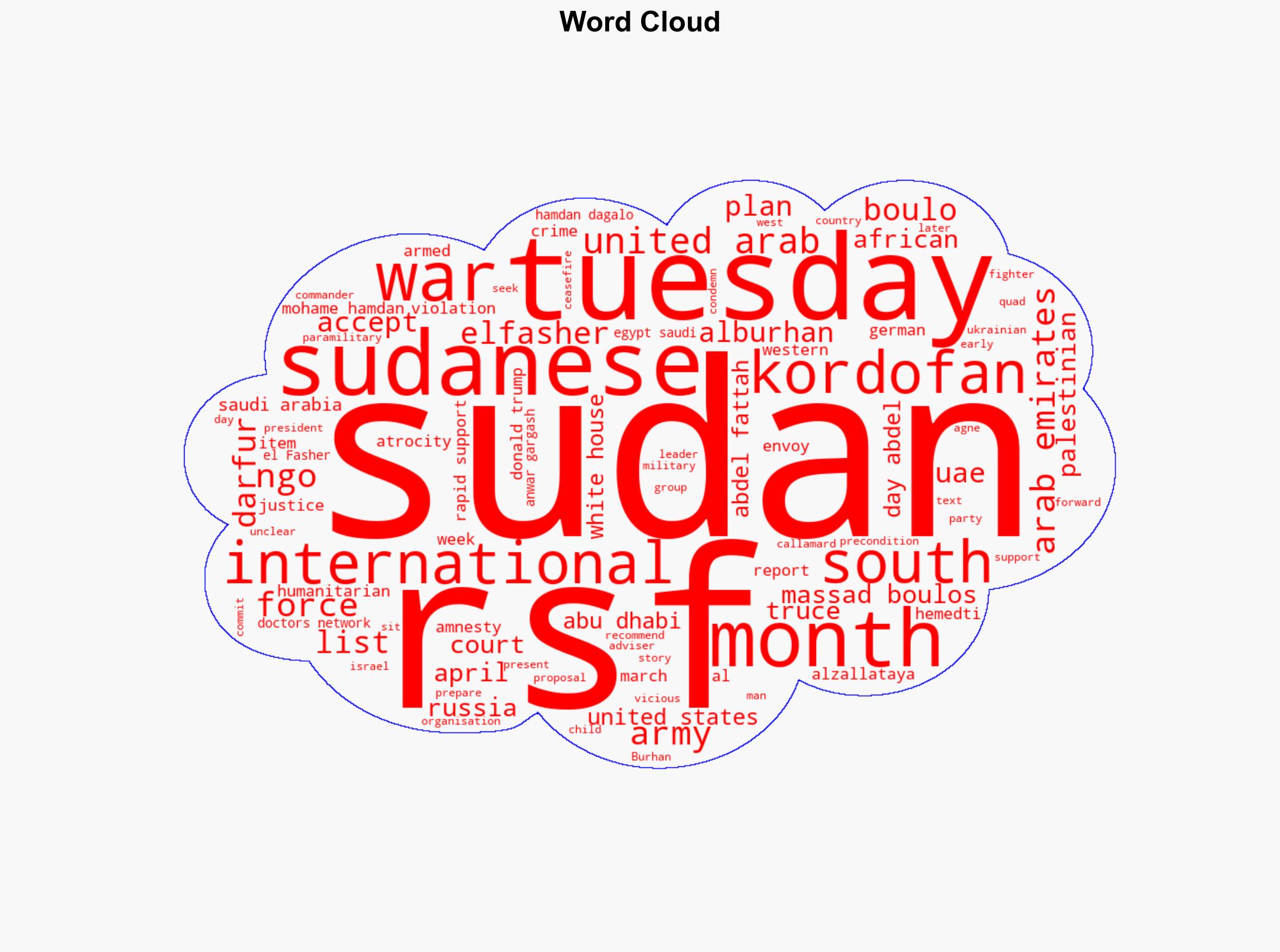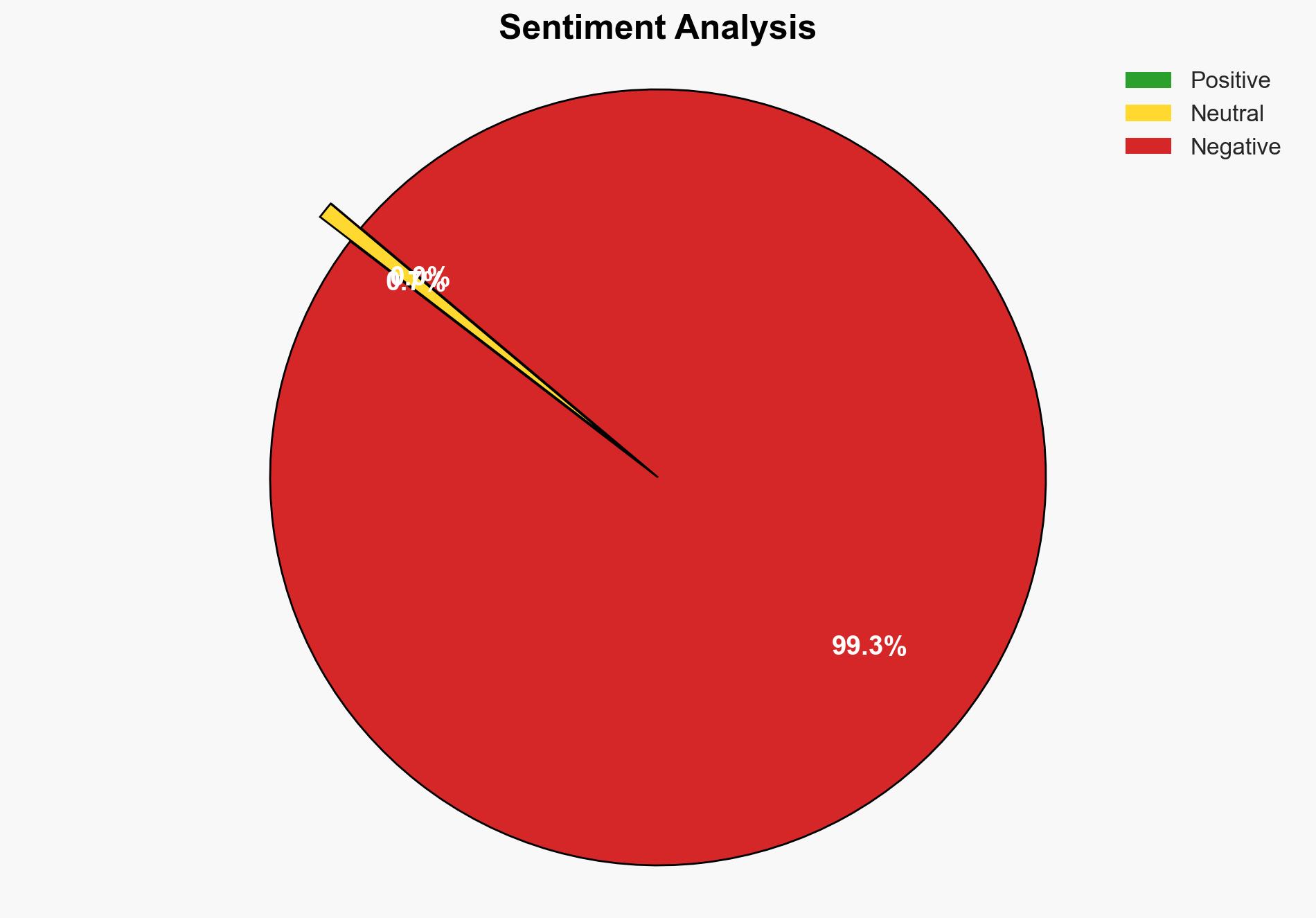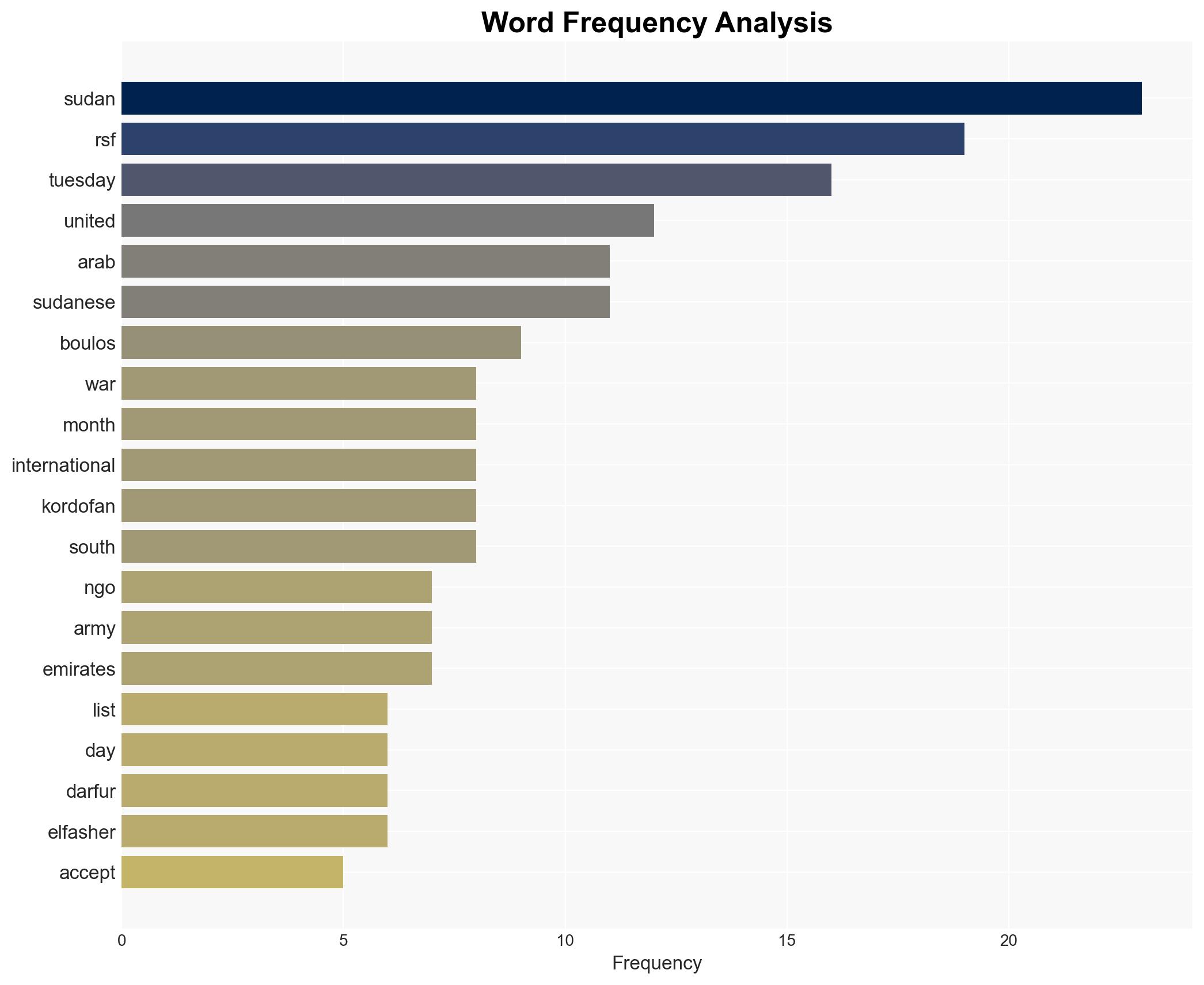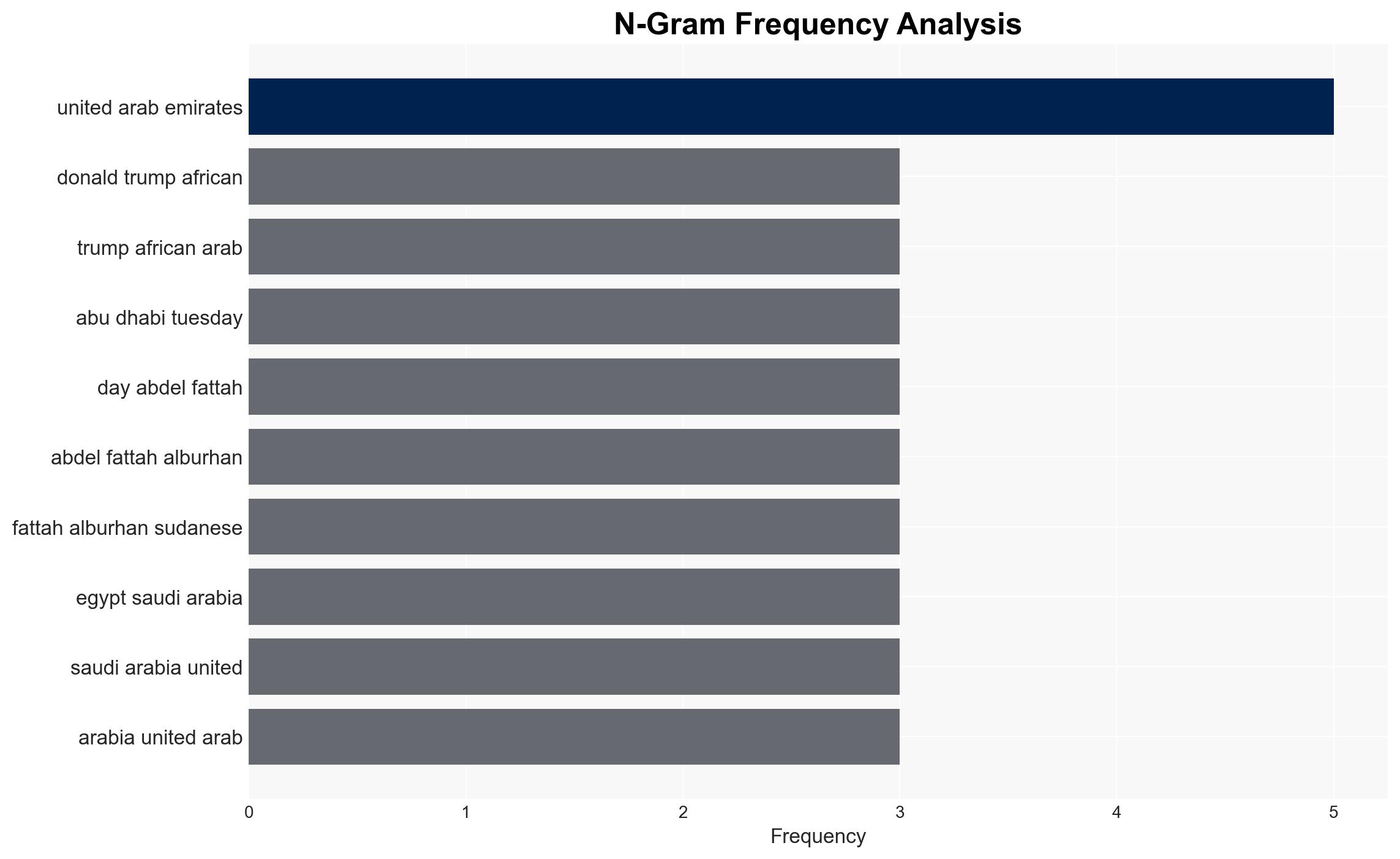US calls on Sudans warring parties to accept ceasefire plan unaltered
Published on: 2025-11-25
AI-powered OSINT brief from verified open sources. Automated NLP signal extraction with human verification. See our Methodology and Why WorldWideWatchers.
Intelligence Report: US Calls on Sudan’s Warring Parties to Accept Ceasefire Plan Unaltered
1. BLUF (Bottom Line Up Front)
The most supported hypothesis is that the United States’ call for an unaltered ceasefire plan is unlikely to be accepted by both Sudanese warring parties due to entrenched positions and external influences. Confidence Level: Moderate. Recommended action includes diplomatic engagement with regional influencers and increased humanitarian support to mitigate civilian impact.
2. Competing Hypotheses
Hypothesis 1: The Sudanese Armed Forces (SAF) and the Rapid Support Forces (RSF) will accept the ceasefire plan unaltered due to international pressure and the humanitarian crisis.
Hypothesis 2: The SAF and RSF will reject the ceasefire plan due to entrenched positions, distrust, and external influences from regional actors.
Hypothesis 2 is more likely given the historical context of distrust, the RSF’s unilateral truce announcement, and the SAF’s rejection of the plan as undermining their position.
3. Key Assumptions and Red Flags
Assumptions: The SAF and RSF are rational actors responsive to international pressure. Regional actors have significant influence over the warring parties.
Red Flags: The RSF’s unilateral truce may be a strategic maneuver rather than a genuine commitment to peace. The SAF’s rejection of the plan suggests deep-seated opposition.
Deception Indicators: Public statements may not reflect true intentions, especially given the RSF’s alleged ongoing atrocities despite truce claims.
4. Implications and Strategic Risks
The continuation of hostilities poses significant risks, including further humanitarian crises, regional instability, and potential spillover into neighboring countries. The involvement of regional actors like the UAE could exacerbate tensions and complicate peace efforts.
5. Recommendations and Outlook
- Engage diplomatically with regional influencers like Egypt, Saudi Arabia, and the UAE to leverage their influence over the warring parties.
- Increase humanitarian aid to affected regions to alleviate civilian suffering and build goodwill.
- Best Scenario: Both parties accept the ceasefire, leading to negotiations and eventual peace.
- Worst Scenario: Escalation of violence with increased civilian casualties and regional destabilization.
- Most-likely Scenario: Continued stalemate with sporadic violence and limited progress towards peace.
6. Key Individuals and Entities
Massad Boulos, Mohamed Hamdan Dagalo (Hemedti), Abdel Fattah al-Burhan, Anwar Gargash.
7. Thematic Tags
Regional Focus, Regional Focus: Sudan, Middle East, North Africa
Structured Analytic Techniques Applied
- Causal Layered Analysis (CLA): Analyze events across surface happenings, systems, worldviews, and myths.
- Cross-Impact Simulation: Model ripple effects across neighboring states, conflicts, or economic dependencies.
- Scenario Generation: Explore divergent futures under varying assumptions to identify plausible paths.
- Network Influence Mapping: Map influence relationships to assess actor impact.
Explore more:
Regional Focus Briefs ·
Daily Summary ·
Support us





